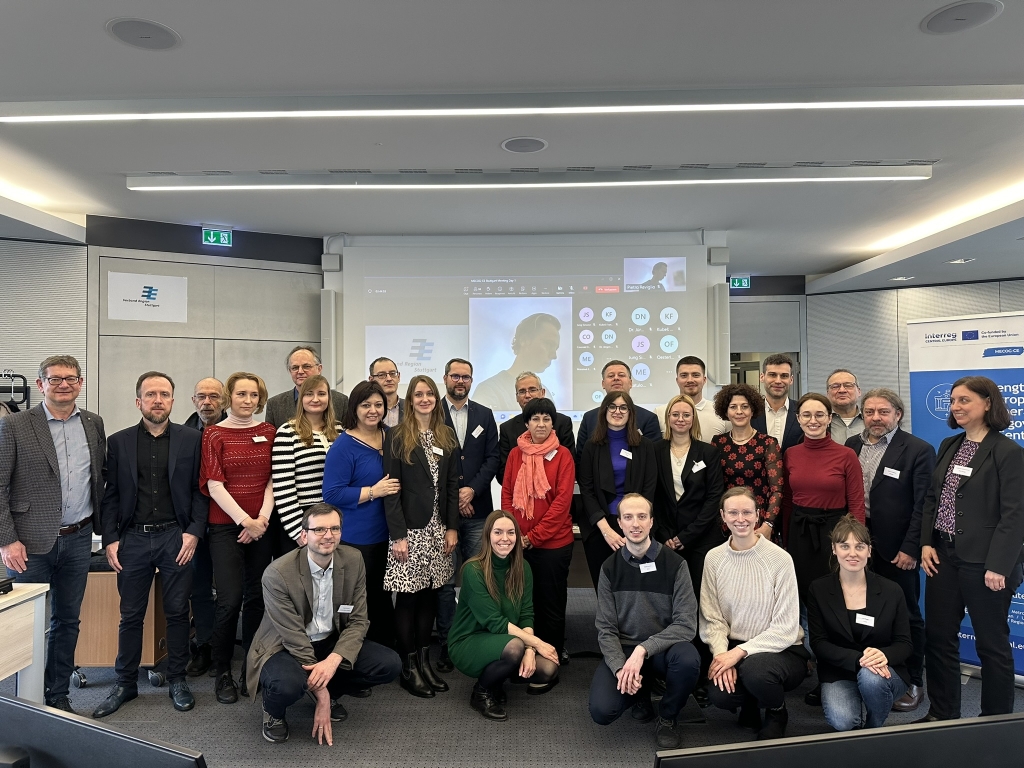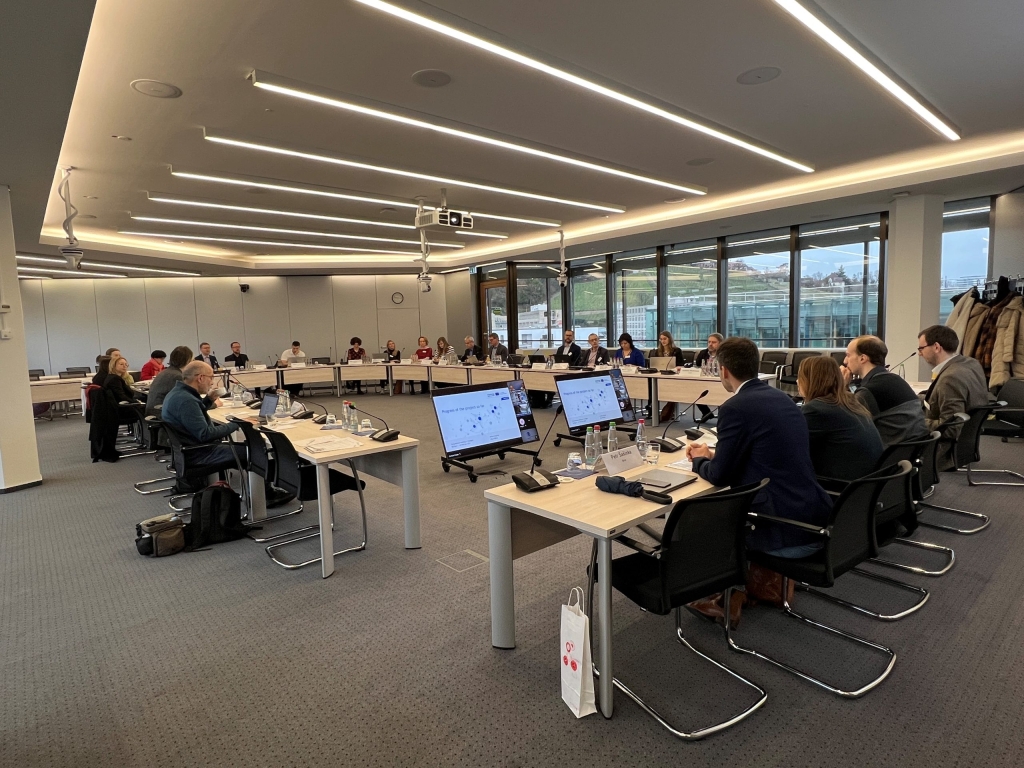The MECOG-CE project partners from across Central Europe (CE) met in partner city of Stuttgart on 22-23 February. The consortium formed study clusters and discussed possible pilot actions as part of a collaborative work. The main objective of these clusters is to share the expertise in implementing, managing, and transferring best practices and tools derived from a comprehensive analysis of project partners’ metropolitan areas. The Common Metropolitan Vision, an advocacy document for metropolitan areas (MAs), was finalized.
Evaluating the status quo of metropolitan dimension towards Common Metropolitan Vision
Under the guidance of Charles University, WP1 co-leader, project partners engaged in a vital discussion on Common Metropolitan Vision, an advocacy document promoting metropolitan dimension in CE conditions. This significant step marks a unified approach towards addressing challenges and opportunities in metropolitan areas. To meet the challenges and pursue the opportunities, the metropolitan areas need emancipation and recognition, metropolitan institutionalization, and also expertise and capacity.
76 best practices for strengthening metropolitan cooperation and governance
The WP1 co-leader University of Silesia introduced an in-depth analysis of metropolitan governance systems, illustrating diverse approaches and national conditions in project partners’ metropolitan areas. The analysis thoroughly described 47 best tools and practices utilized by partner metropolitan areas. Some of them will be further studied, tested, and implemented within the study clusters.
Additionally, the analysis of 29 best tools and practices outside the CE was presented. These tools and practices can be used as a source of information, inspiration and exchange of experience even outside the project.
In overall, the project consortium identified and described 76 tools aimed at strengthening metropolitan cooperation and governance.


Formation of study clusters and possible pilot actions
In an important workshop led by the Lead Partner, the City of Brno, partners discussed the methodology and process of the study clusters formation. This session culminated in joint formation of the study clusters composed of lighthouses (experienced partners in the position of supervisors) and learning MAs.
Project partners will be divided in 5 study clusters according to their choice of selected best practices based on regional stakeholders’ meetings in each MA. The final study clusters will be focused on these tools:
Setting Guidelines for Collaborative Success
The initial common guidelines for all study clusters, fostering a shared understanding and approach were set-up.
The project partners will work in the clusters for a year and will study the selected best practice in detail to test its potential transferability and adaptation to their real conditions. This process will ensure cooperation and knowledge sharing among each other and will lead to the execution of pilot actions and proposals of new solutions.
This meeting in Stuttgart marks a pivotal moment in the journey towards enhanced and effective metropolitan cooperation. The commitment and expertise of all partners signal a promising future for metropolitan regions in Central Europe.
The project is co-funded by the European Union funds, specifically the European Regional Development Fund, through the Interreg CENTRAL EUROPE transnational and interregional cooperation programme. More information about this project including publicity can be found here.
Register your e-mail address to receive regular updates from the Brno Metropolitan Area.